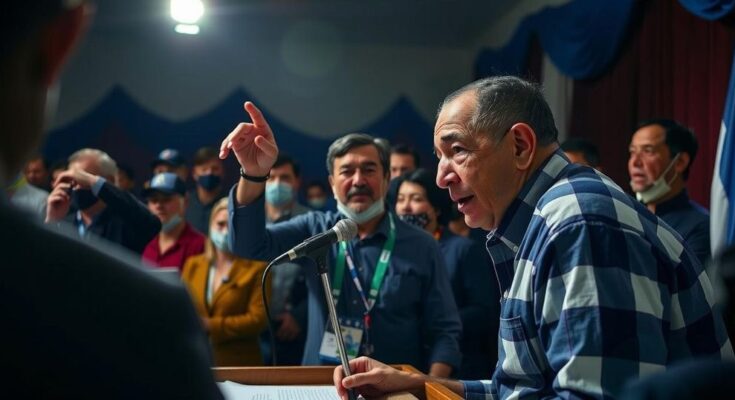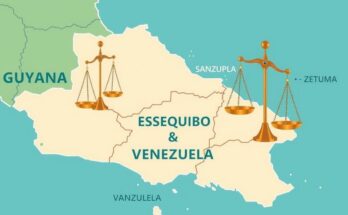Uruguay will vote in a closely contested presidential runoff featuring center-left candidate Yamandu Orsi against conservative Alvaro Delgado, with polls indicating a tight race. Both candidates aim to sway undecided voters, while the political context suggests minimal polarization. Economic stability may influence voter preferences, and the outcome remains critical as it reflects broader democratic trends in the region.
On Sunday, voters in Uruguay, a country noted for its calm demeanor and progressive policies, will partake in a highly competitive second-round presidential election. This decisive race features opposition center-left candidate Yamandu Orsi, who represents the Broad Front and aims to implement a “modern left” approach, against conservative candidate Alvaro Delgado. Delgado, aligned with the National Party and the Colorado Party, seeks to maintain the continuity of the governance established under President Lacalle Pou, who is ineligible for re-election.
With a populace of approximately 3.4 million, the election results are anticipated to be closely contested, with recent polls indicating a margin of less than 25,000 votes may separate the candidates. Notably, Uruguay’s political environment is characterized by relative moderation and bipartisanship, which softens the potential impact of the election outcome. Polls will be conducted from 8 a.m. to 7:30 p.m. local time, with initial results expected shortly thereafter.
Although Mr. Orsi secured 43.9% of votes in the October elections, Delgado garnered 26.8%, aided by additional support from the conservative Colorado Party. Despite the lack of an absolute majority in the lower house, Mr. Orsi’s Broad Front holds a significant presence in the Senate with 16 out of 30 seats, providing him a favorable platform to govern. Both candidates are vying for the additional 8% of voters from small, unaligned parties, as well as those who did not participate in the first round of voting.
Leading up to the election, neither candidate offered new proposals to attract these voters, and a recent televised debate appeared to have negligible impact on public opinion. As Uruguay concludes this election cycle, it is pivotal to consider whether the current government can maintain its popularity amidst global trends signaling a decline in support for incumbent parties. Economic indicators suggest a stable Uruguayan economy, which may benefit Mr. Delgado’s candidacy. Analysts observe that voters do not show strong desires for dramatic political changes.
Uruguay is often viewed as a stable and progressive nation in South America, marked by its notable policies on social issues, including the legalization of marijuana. In recent years, the country has witnessed a series of elections, reflecting broader democratic practices and the engagement of its citizens in the political process. This election cycle is particularly significant, as it highlights a contest between the need for continuity versus progressive change within its governance framework. The dynamics of the election reveal a moderate political climate, with candidates drawing support from overlapping ideological bases.
As the presidential runoff approaches its conclusion, the tight race between Yamandu Orsi and Alvaro Delgado is illuminating the unique political landscape of Uruguay, characterized by moderation and cross-party collaborations. Regardless of the outcome, the election serves as a barometer for the satisfaction of the Uruguayan electorate amidst global economic challenges and raises questions about the future direction of the nation’s policies. The emphasis on continuity versus modernization remains a core theme as voters cast their ballots in a potentially game-changing election.
Original Source: www.ndtv.com




